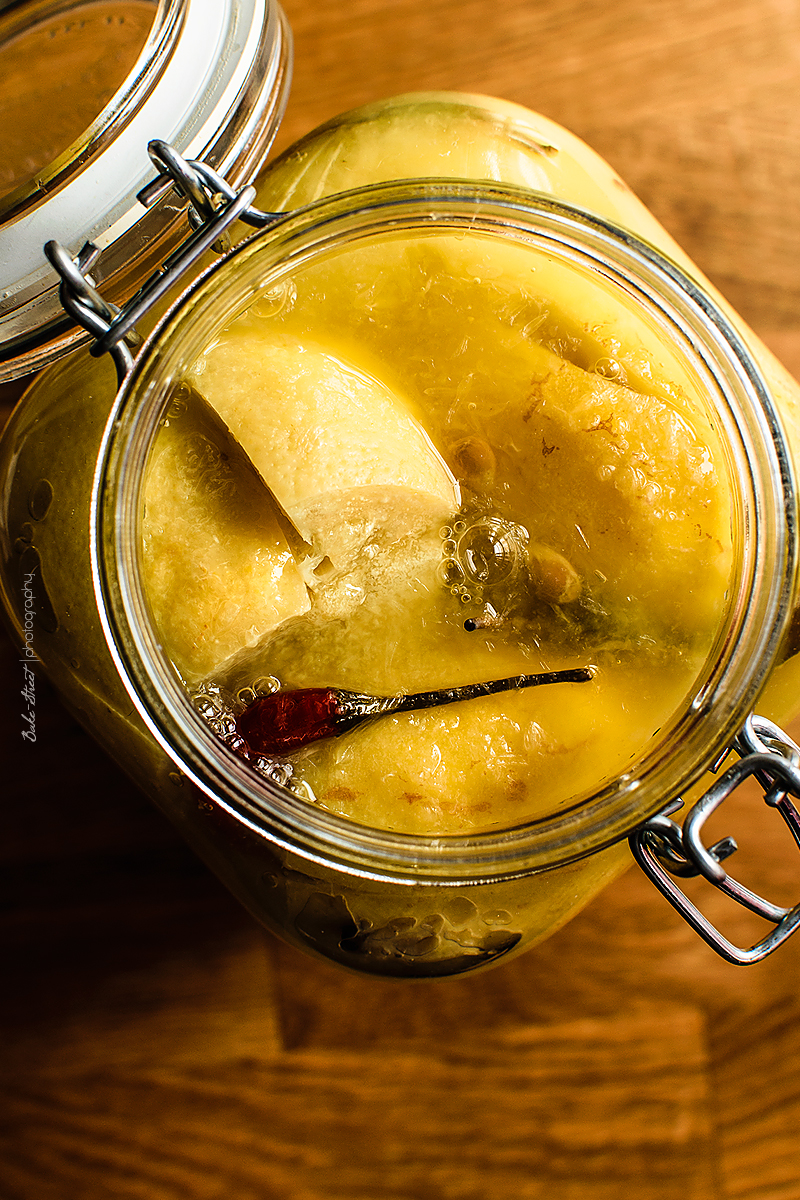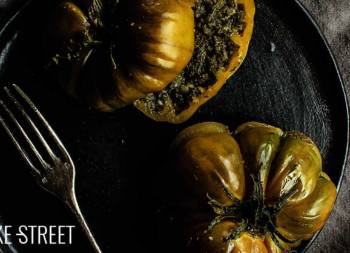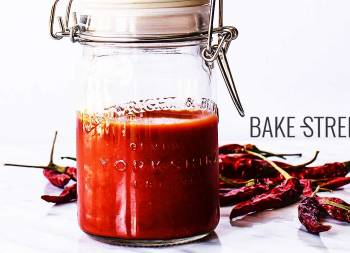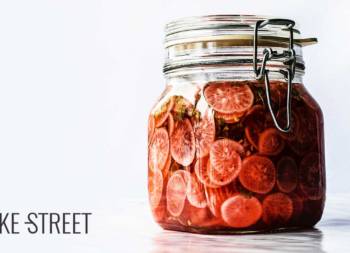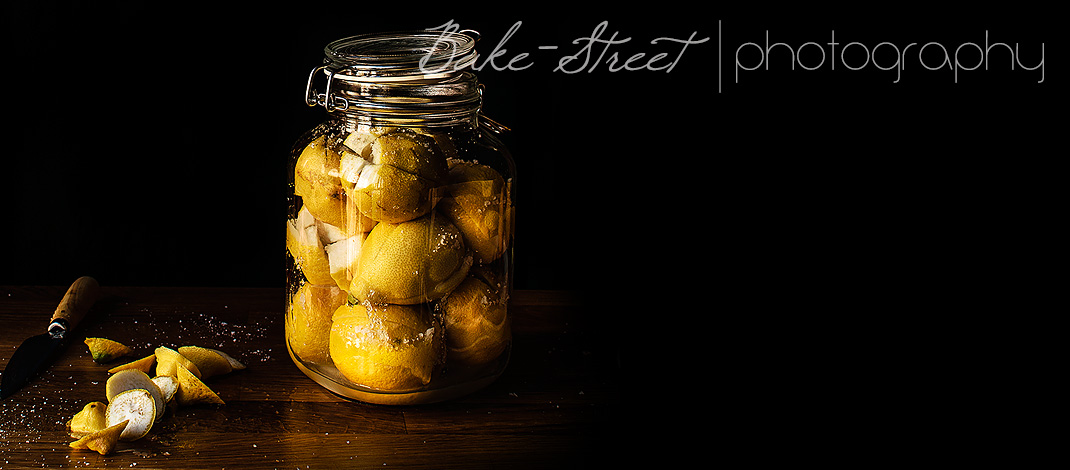
Preserved lemons {Hamad Mraquade}
I really love to make fermented and preserved food, so today I bring you a delicious from African cuisine, specially Moroccan gastronomy, that I’m sure many of you have tasted before. Preserved lemons or Hamad Mraquade.
Make fermented or preserved food is really easy and don´t take too much time (from our work!) The “harder” part from the process is the waiting time to enjoy it. But I think this makes it more attractive, at least for me 😉
What are exactly preserved lemons?
They are lemons exposed a fermenting process under a brine make with it own juice and salt for 4-6 weeks. We can add some spices to get more flavour and aroma.
In this case I used bay leaves, dried red chile, garlic cloves and whole white peppercorns. But, you can change at your choice, it won’t affect to finally fermentation process. It is only to add aroma.
What do I need to make preserved lemons?
Easy.
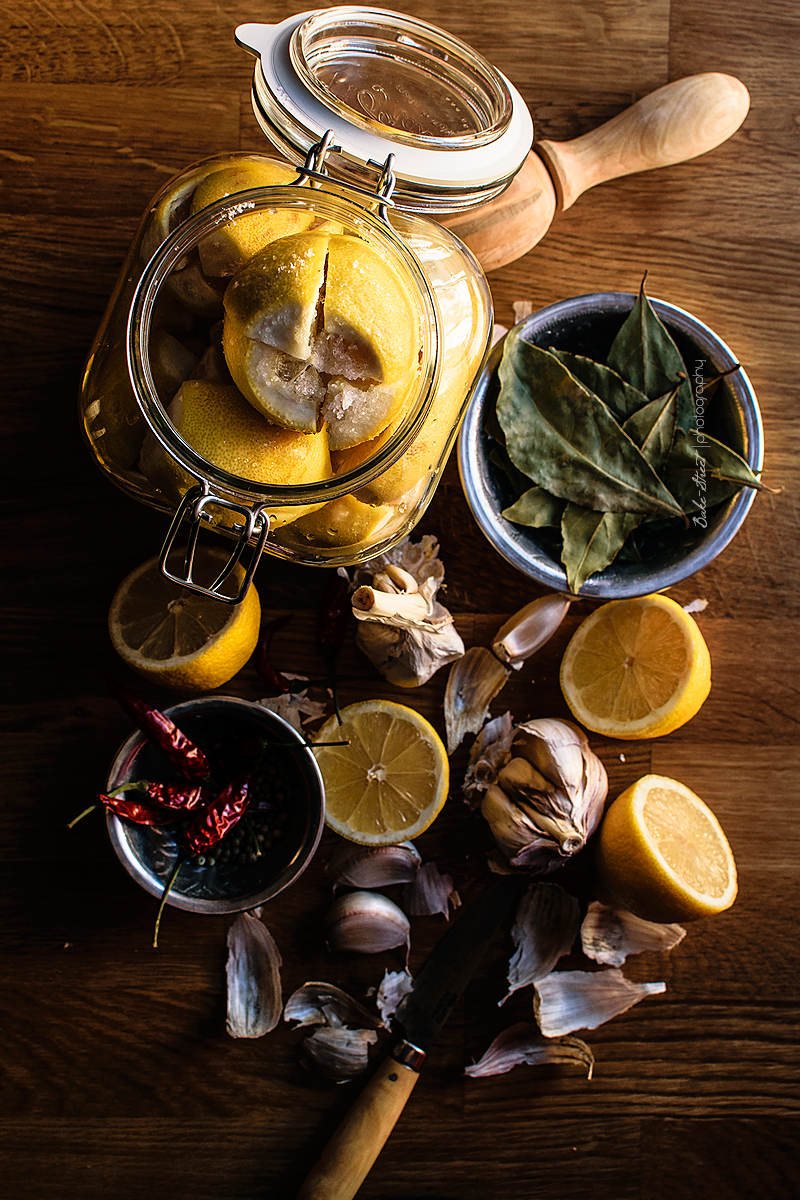
The first of all a large sterile glass canning jar in which lemons can make the fermentation process. In my case I used an airtight glass container (Fido) 68 fl oz (2 l.). If you think this glass jar is too big, you can use another one smaller and make less lemons.
When I make fermented food I like to do a big amount of them because process is too long.
Use good quality lemons, we are going to work with this ingredient taking special care. It will fermented for a long time to become in a authentic delicacy. The better quality from lemons, the better results you will get.
Salt, to make fermented food I always use coarse sea salt. It is usual think that sea salt is healthier than common salt, because the last one it may be believed more chemical. But you can use salt at your choice.
I have read some articles and finally you understand that salt is salt. A chemical compound created by chlorine and sodium, and all its variations derive from sea origin. It does not matter which kind of salt we use: Maldon, Himalayan pink salt, coarse, black salt… the composition is the same in all cases.
Sea salt and table salt have the same basic nutritional value, despite the fact that sea salt is often promoted as being healthier.
Of course there is a variation, its crystallization. The refinery process that transform salt to make it thinner, for example. Furthermore, salt it has being manipulated by the human to make it more “attractive”: refined salt is bleached in order to obtain the white color, thin and adding minerals…
The composition is the same, so do what you prefer, this is always a debate. But, if it´s possible use a coarse salt.
Continue…
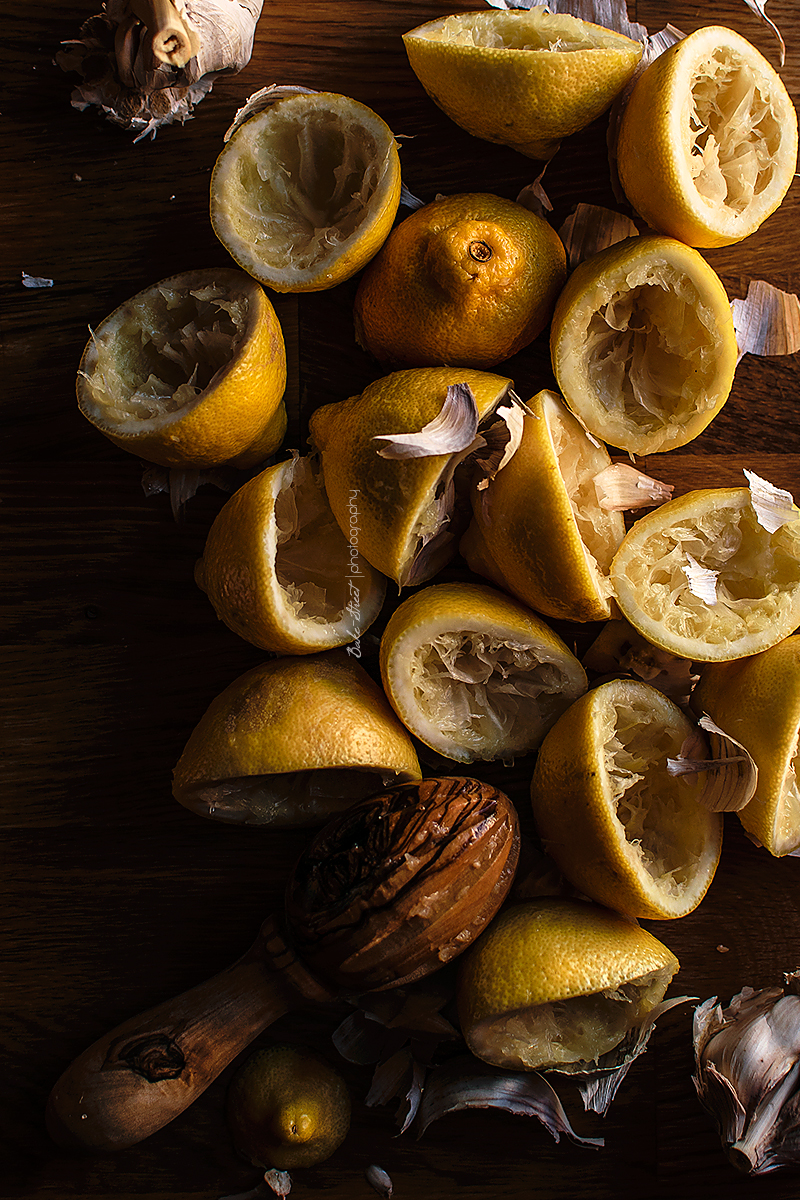
Spices, you can use what you prefer, buy always try to add good quality products.
Once we have all ingredients, start the process.
What happens in the fermenting lemon process?
For the first 48 hours it will happen a process called osmosis in which sugars, minerals and other substances from fermented lemons spread in the brine. These substances will be the feed for bacterias, and these bacterias will create lactic acid. This is the origin from lactic fermentation.
Salt begins to work at this moment, it will change lemons’s texture during the fermentation. This is one of the most important physical aspect from fermentation. For example, Chucrut , its texture after the fermentation process becomes more crunchy.
The more time goes, the better taste.
After fermentation process, how can I preserving them?
Once you open the glass jar, ideally is stored in the fridge. But, you can keep at room temperature as long as they’re fully submerged in lemon juice. Ottolenghi says that it could be covered with a thin layer of olive oil.
Salt helps to remove bad bacterias, so don´t be worry about it 🙂

I’m sure that one of your questions is, which is its flavour? This is difficult because there is nothing similar, I have never tasted something like this. It is a potent flavour, super concentrate lemon, with a subtle bitter taste (not unpleasant) and salty. In fact, it could be very salty, so you can rinse it before use it in a recipe.

It is usual to use the peel from the lemons, not the flesh. But I have read some recipes in which they use this part too. Jamie Oliver uses preserved lemons instead of salt for some recipes like rice or cous cous. We must try this!
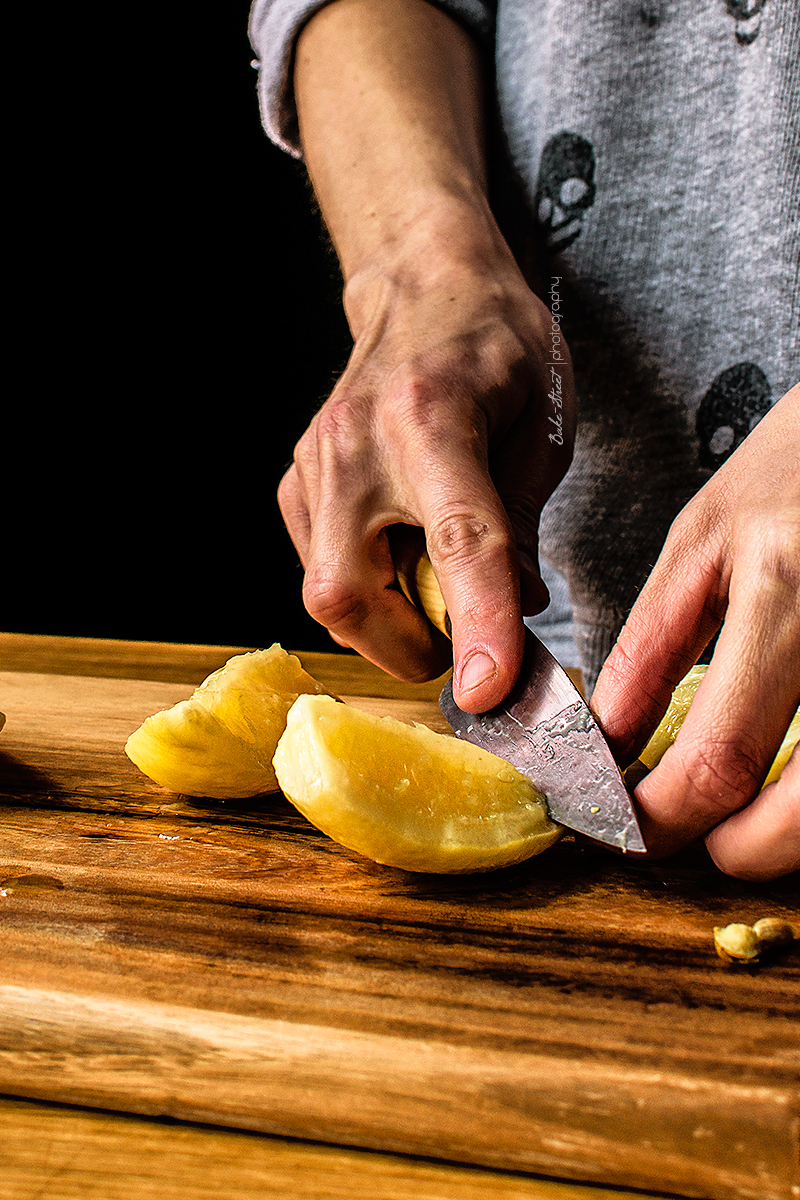
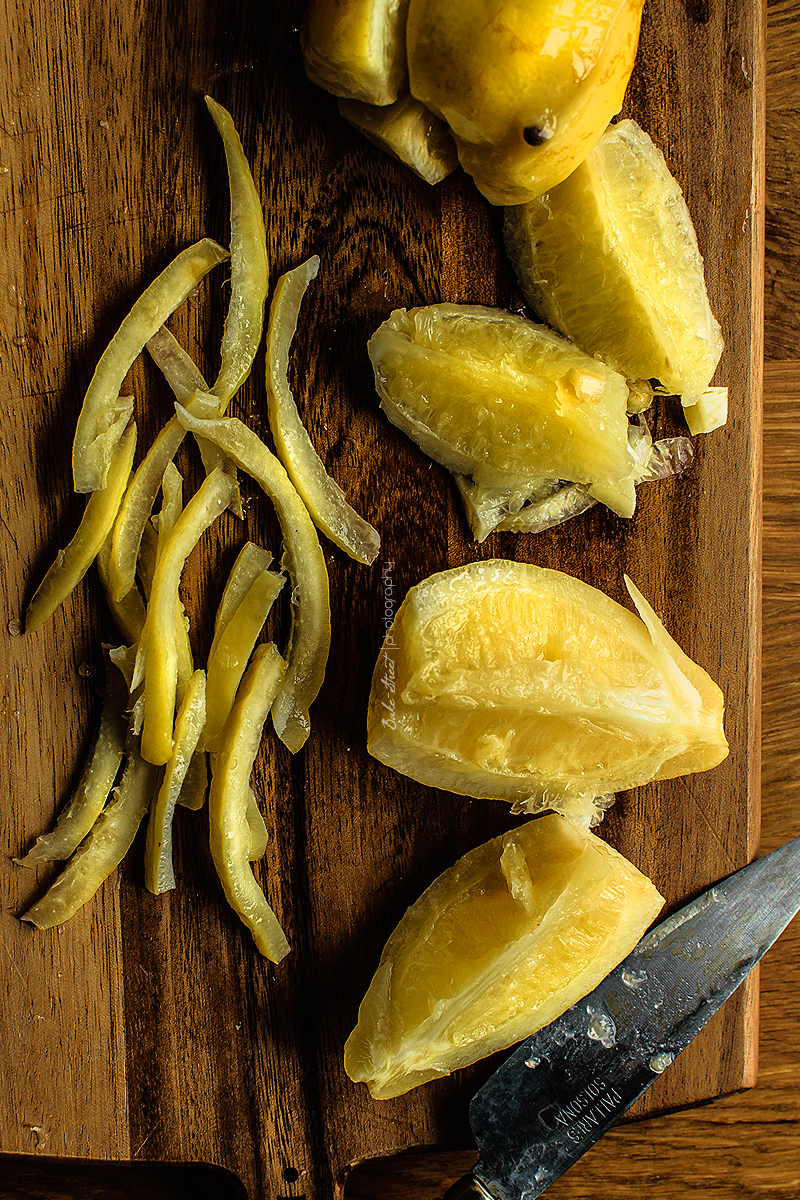
Ingredients
One large sterile glass canning jar 68 fl oz (2 l.)
- 12 large lemons*
- juice from roughly 35.27 oz (1 kg) lemons
- coarse sea salt like Maldon
- 5-6 large garlic cloves
- 4-5 bay leaves
- 5-6 dried red chile
- whole white peppercorns
* Final amount will depend from the lemon size.
Instructions
FIRST DAY
- Ideally it would be used organic lemons, otherwise we have to clean wax from them.
Clean waxed lemons.
- I read how to clean waxed lemons from Nigella.
- Fill a pot with water and heat until boil.
- Put one third from lemons in a colander and pour over them part from the boiled water.
- Scrub with a stiff brush to remove the coating wax.
- Rinse under fresh water, set aside.
- Repeat with the remaining lemons.
- Dry well will kitchen roll.
Make preserved lemons.
- Trim the ends off lemons (only one of the ends) with a sharp knife and cut in quarter lengthwise keeping the base of the lemon intact.



- Stuff with coarse sea salt and squeeze.


- Place into the glass jar and continue with the remaining lemons. You must pack them well. First day you can not keep all lemons, but the next day we can.

- Press lemons to keep them closed and close the glass jar.
- Let sit in a fresh and dark place for 24 hours.
- First day lemons will be covered by a small layer of juice. We must wait salt make its work to help fluid drain.
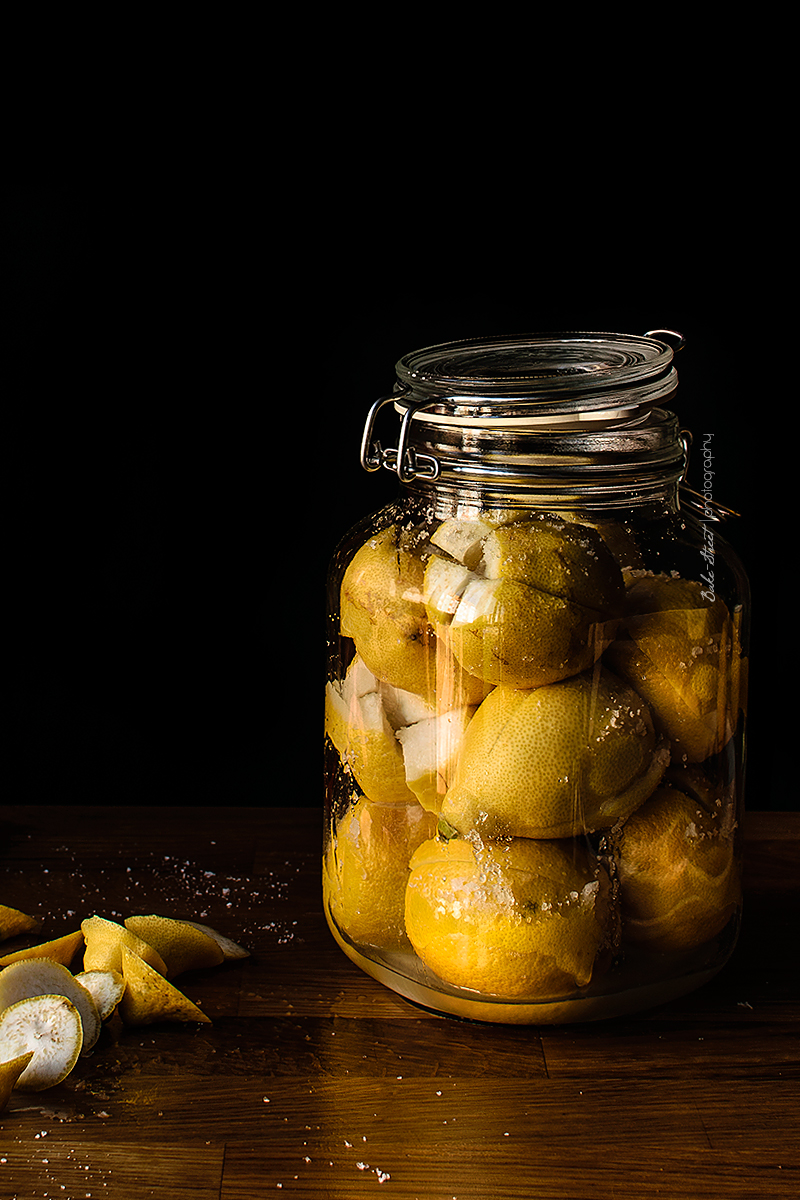
SECOND DAY
After the first 24 hours lemons has drained quiet juice.
- Add the lemon or lemons, stuffed with coarse sea salt, the same way than the others.
- Open the jar and place inside with the rest. Press and close again.
- Let sit in a fresh and dark place for 24 hours.
THIRD DAY
More juices will be drained from lemons, roughly 1/3.
- Add some bay leaves, dry red chiles, whole garlic cloves without peel and whole peppercorns.
- Lemons must be pressed.
- Once all ingredients are in the jar, cover with more lemon juice, make sure the lemons are fully submerged. Amount from juice will depend from the lemons size.
- Close the glass jar and let ferment for 30 days in a fresh, dry an dark place. A kitchen cupboard will be perfect.

Lemons ready to ferment...
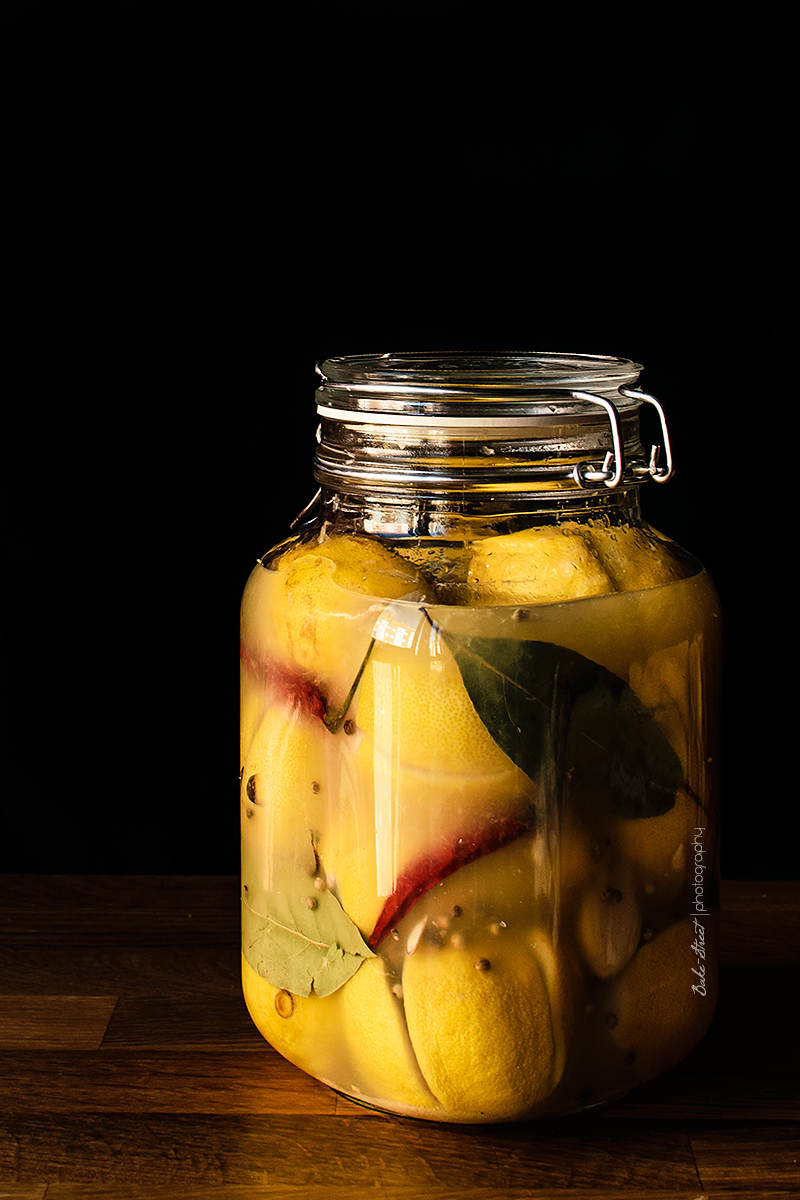
AFTER 4 WEEKS...
- Lemons will be ready to use in our recipes.

- Lovely bubbles...

Furthermore, we can use them to make tajine, soups, salads, ceviche... from now on I will make some recipes with them.
You can make these preserved lemons fro Christmas recipes, you are on time! I'm sure you will make great recipes with them.
Big hugs,
Eva
Sources: Wild Green Sardines, Mastering fermentation, Art of fermentation








